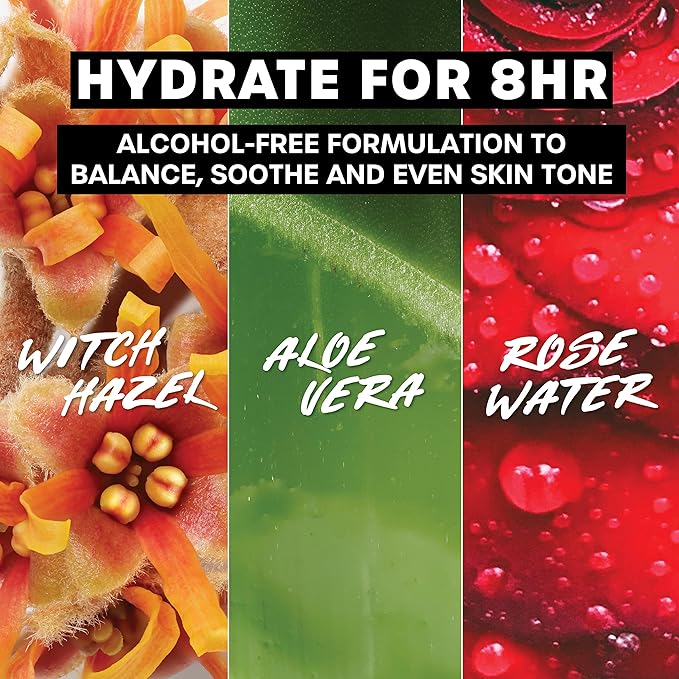CBD Oil: Exploring Its Health Benefits and Uses
Cannabidiol (CBD) oil has gained significant attention in recent years for its potential therapeutic benefits. Extracted from the hemp plant, CBD is a non-psychoactive compound that offers various health advantages without the “high” associated with marijuana. As more research emerges, CBD oil continues to garner interest for its versatility in addressing a wide range of health issues. This comprehensive guide explores the benefits, uses, and frequently asked questions surrounding CBD oil.
Table of Contents
ToggleThe Science Behind CBD Oil
What is CBD?
CBD, short for cannabidiol, is one of over 100 cannabinoids found in the cannabis plant. Unlike tetrahydrocannabinol (THC), the primary psychoactive compound in marijuana, CBD does not produce a euphoric high. This makes CBD an appealing option for those seeking relief from pain and other symptoms without the mind-altering effects of cannabis or certain pharmaceutical drugs.
How Does CBD Work?
CBD interacts with the body’s endocannabinoid system (ECS), a complex cell-signaling system involved in regulating a variety of functions and processes, including sleep, mood, appetite, and immune response. The ECS comprises endocannabinoids, receptors, and enzymes:
- Endocannabinoids: are naturally occurring cannabinoids produced by the body.
- Receptors: Found throughout the body, these receptors bind with endocannabinoids to signal that the ECS needs to take action. The two primary receptors are CB1, mostly found in the central nervous system, and CB2, mainly located in the peripheral nervous system, especially immune cells.
- Enzymes: are responsible for breaking down endocannabinoids once they’ve carried out their function.
CBD influences these receptors indirectly, enhancing the body’s ability to use its endocannabinoids more effectively.
Health Benefits of CBD Oil
Pain Relief
CBD is widely recognized for its pain-relieving properties. Research indicates that CBD may help reduce chronic pain by impacting endocannabinoid receptor activity, reducing inflammation, and interacting with neurotransmitters. Studies have shown promising results for conditions such as arthritis, multiple sclerosis, and chronic pain syndromes.
Anxiety and Depression
Mental health disorders like anxiety and depression can have devastating impacts on well-being. Traditional treatments often come with side effects or risk of dependence. CBD has shown promise as a natural treatment option. Research suggests that CBD can act on the brain’s receptors for serotonin, a neurotransmitter that regulates mood and social behavior.
Neuroprotective Properties
CBD’s interaction with the endocannabinoid system and other brain signaling systems may provide benefits for neurological disorders. Studies have shown potential benefits in treating epilepsy and multiple sclerosis. The FDA has approved Epidiolex, a CBD-based drug, for treating seizures associated with rare forms of epilepsy.
Heart Health
Recent research has linked CBD with several benefits for the heart and circulatory system, including the ability to lower high blood pressure, which is associated with higher risks of health conditions such as stroke, heart attack, and metabolic syndrome. The stress- and anxiety-reducing properties of CBD are thought to be responsible for its ability to help lower blood pressure.
Anti-Inflammatory and Antioxidant Effects
CBD has anti-inflammatory properties that may help reduce symptoms related to inflammatory conditions. Additionally, its antioxidant properties can help combat oxidative stress, which contributes to the aging process and various diseases.
Skin Health
CBD oil is increasingly being used in skin care products for its potential benefits. It may help treat conditions such as acne, psoriasis, and eczema due to its anti-inflammatory properties and ability to reduce sebum production.
Substance Abuse Treatment
CBD has been investigated for its potential role in helping individuals with substance abuse disorders. Animal and human studies suggest that CBD can modify circuits in the brain related to drug addiction, reducing dependency and withdrawal symptoms.
Improved Sleep
Many people report that CBD helps improve sleep quality. It is believed that CBD may interact with receptors involved in the sleep-wake cycle, promoting relaxation and reducing anxiety that can interfere with sleep.
Uses of CBD Oil
Methods of Consumption
CBD oil can be consumed in various forms, each offering different benefits and levels of bioavailability.
- Sublingual Tinctures: These are drops placed under the tongue for quick absorption into the bloodstream.
- Capsules and Edibles: These offer a convenient way to consume CBD, though they take longer to take effect due to digestion.
- Topicals: Creams, balms, and lotions infused with CBD can be applied directly to the skin for localized relief.
- Vaping: Inhaling vaporized CBD oil offers rapid effects but may pose respiratory risks.
- Transdermal Patches: These deliver CBD through the skin and provide a steady release over time.
Dosage Considerations
Determining the right dosage of CBD can be challenging as it depends on various factors, including body weight, the condition being treated, the concentration of CBD in the product, and individual body chemistry. It’s recommended to start with a low dose and gradually increase until the desired effects are achieved.
Safety and Side Effects
While CBD is generally considered safe, some people may experience side effects, including:
- Dry mouth
- Diarrhea
- Reduced appetite
- Drowsiness
- Fatigue
It’s also important to note that CBD oil can interact with certain medications, so consulting with a healthcare provider before starting CBD is crucial, especially for those on medication.
Frequently Asked Questions (FAQs)
1. Is CBD oil legal?
The legality of CBD oil varies by country and state. Federal law in the United States makes CBD derived from hemp with less than 0.3% THC legal, but state laws may impose restrictions.
2. Will CBD oil get me high?
No, CBD oil will not get you high, as it does not contain significant amounts of THC, the psychoactive component of cannabis.
3. How do I choose a high-quality CBD oil?
Look for products that are third-party tested, made from organically grown hemp, and contain no additives or artificial ingredients.
4. Can I take CBD oil with my current medications?
CBD can interact with certain medications. It’s essential to consult with your healthcare provider before combining CBD with other medications.
5. How long does it take for CBD oil to work?
The onset of effects can vary based on the method of consumption. Sublingual tinctures typically take 15–45 minutes, while edibles may take 30–90 minutes.
6. Can I use CBD oil for pets?
Yes, CBD oil is often used for pets to help with anxiety, pain, and other health issues. Always use pet-specific products and consult a veterinarian.
7. How should I store CBD oil?
Store CBD oil in a cool, dark place away from direct sunlight to maintain its potency.
8. Can I overdose on CBD oil?
CBD is non-toxic, and an overdose is unlikely. However, taking extremely high doses may increase the risk of adverse effects.
9. Is there a difference between hemp oil and CBD oil?
Yes, hemp oil is extracted from the seeds of the hemp plant and contains little to no CBD. CBD oil is extracted from the flowers, leaves, and stalks and contains high levels of CBD.
10. What is full-spectrum CBD oil?
Full-spectrum CBD oil contains all the cannabinoids, terpenes, and other beneficial compounds found in the cannabis plant, including trace amounts of THC.
11. What is broad-spectrum CBD oil?
Broad-spectrum CBD oil contains multiple cannabinoids and terpenes but has had the THC completely removed.
12. What is CBD isolate?
CBD isolate is the purest form of CBD, with all other plant compounds removed, resulting in a product that is 99% pure CBD.
13. How does CBD oil compare to other cannabinoids?
CBD is non-psychoactive and offers various therapeutic benefits without the high associated with THC. Other cannabinoids, like CBG and CBN, have their unique properties and benefits.
14. Can CBD oil help with weight loss?
There is limited evidence to suggest that CBD may aid in weight loss by influencing metabolism and reducing appetite, but more research is needed.
15. How does CBD interact with the endocannabinoid system?
CBD interacts with the ECS by influencing receptor activity, enhancing the body’s ability to use its endocannabinoids more effectively.
16. Can CBD oil help with chronic pain?
Yes, many studies have shown that CBD can help reduce chronic pain by affecting endocannabinoid receptor activity, reducing inflammation, and interacting with neurotransmitters.
17. Is CBD oil safe for long-term use?
While more long-term studies are needed, current research suggests that CBD is generally safe for long-term use when taken in appropriate doses.
18. Can CBD oil help with cancer symptoms?
CBD may help alleviate some cancer-related symptoms, such as pain and nausea, but it is not a cure for cancer. Always consult with a healthcare provider for appropriate treatment.
19. Can I cook with CBD oil?
Yes, CBD oil can be added to food and beverages, but it should not be exposed to high temperatures, as this can reduce its effectiveness.
20. How do I know if CBD oil is working for me?
Monitoring your symptoms and keeping a journal can help track the effectiveness of CBD oil. Adjust the dosage as needed under the guidance of a healthcare professional.
Conclusion
CBD oil offers a range of potential health benefits, from pain relief and anxiety reduction to improved heart health and neuroprotection. As research continues, the therapeutic potential of CBD becomes increasingly evident, making it a valuable natural alternative for many. When considering CBD oil, it is essential to choose high-quality products, start with a low dose, and consult with a healthcare provider, especially if taking other medications. With proper use, CBD oil can be a beneficial addition to a healthy lifestyle.











One Comment